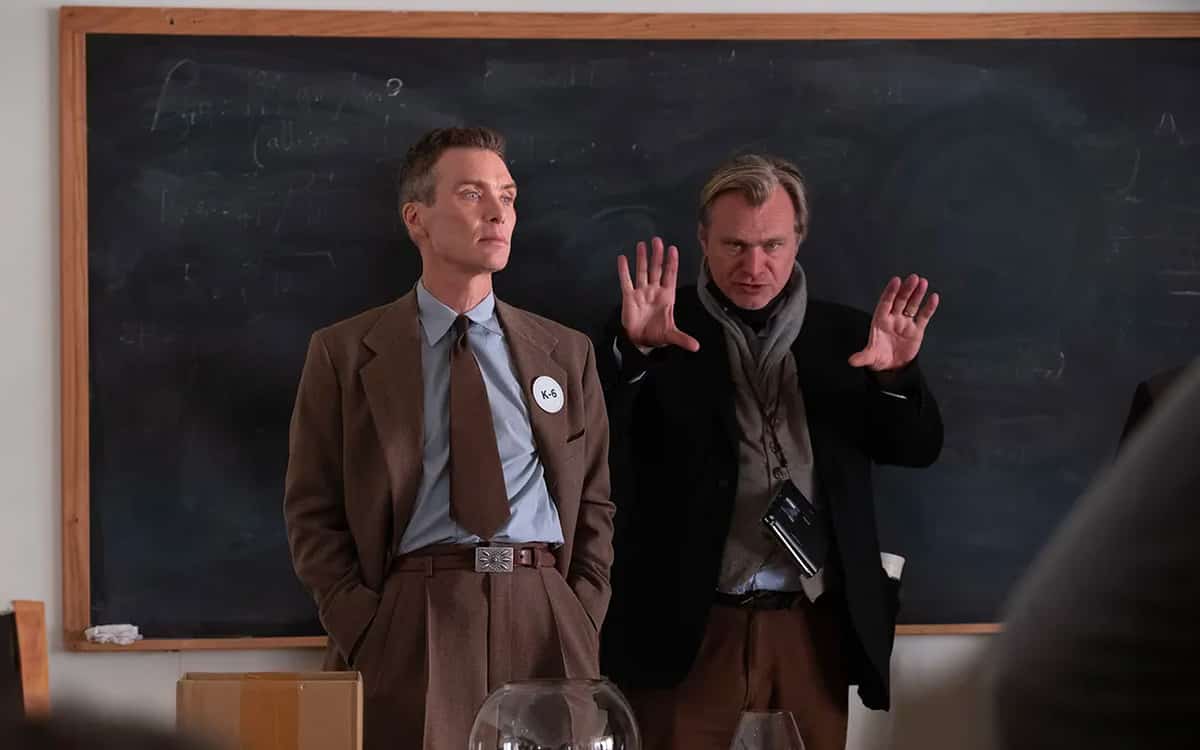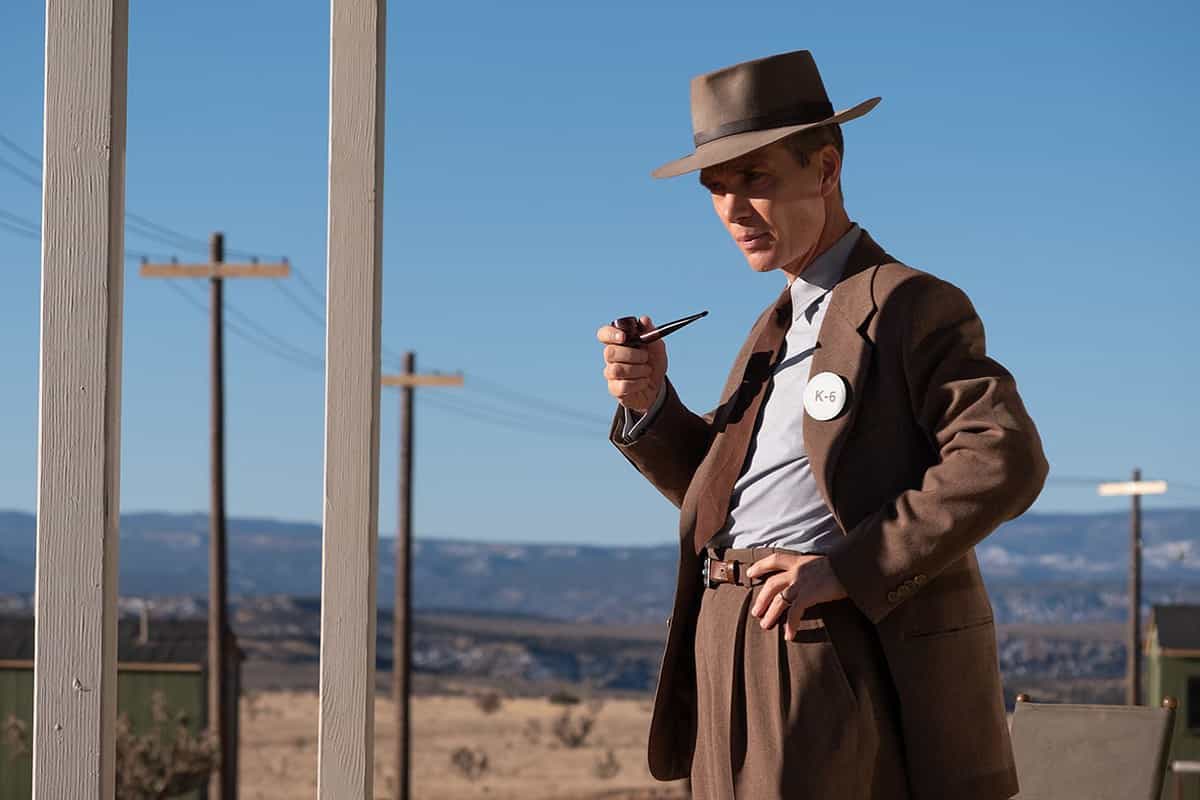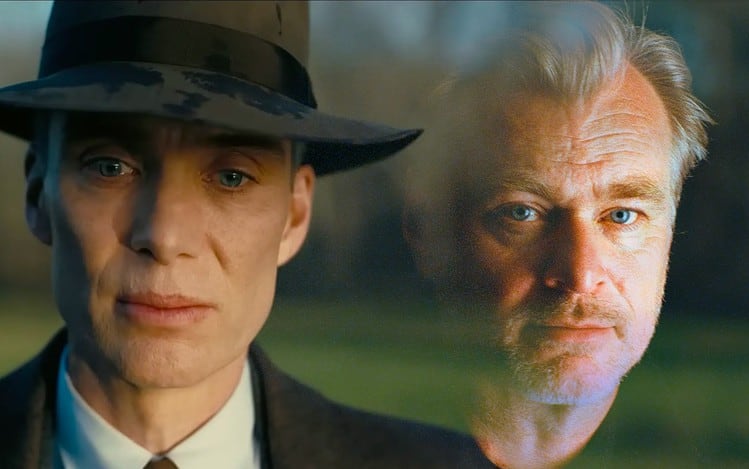When a director like Christopher Nolan takes the helm of a film, it’s bound to be filled with layers and intricacies that go beyond the surface. Oppenheimer, Christopher Nolan’s latest masterpiece, is no exception. While the film delves into the life of J. Robert Oppenheimer and the creation of the atomic bomb, there’s a meta-story at play here that suggests it’s also about the Dark Knight director himself and his cinematic journey.
At first glance, the idea of Nolan making a metafilm may seem surprising, given his reputation for serious and thought-provoking storytelling. However, history shows us that Nolan isn’t averse to weaving allegorical elements into his films. Take, for instance, his iconic movie Inception, which, beyond its heist plot within dreams, carries a hidden narrative about the art of filmmaking. Nolan himself confirmed this, emphasizing how Inception reflects his own artistic journey.
In Oppenheimer, we see parallels between J. Robert Oppenheimer and Christopher Nolan. Both are visionary leaders in their respective fields, known for their unapologetic pursuit of greatness. They have the ability to assemble a team of exceptional talents, whether it’s the scientists working on the Manhattan Project or the star-studded cast of Oppenheimer. Their works produce explosive results, be it the atomic bomb or the box office success of Nolan’s films.

Yet, there’s a flip side to their brilliance. Both men exhibit signs of ego and a refusal to compromise. Just as Oppenheimer’s ego clashed with the government’s decisions regarding the bomb, Nolan’s artistic choices, such as his infamous sound mixing, have raised eyebrows with fans. It’s a testament to their unwavering commitment to their vision, for better or worse.
The atomic bomb in Oppenheimer‘s story serves as a symbol, much like Nolan’s bomb—the superhero mega-franchise, especially Batman. Both changed the trajectory of their careers. Oppenheimer’s bomb led to worldwide concerns about nuclear weapons, while Nolan’s Batman films transformed the cinematic landscape into what it is today. They both inadvertently set off chain reactions in their respective fields, with Oppenheimer’s fears materializing in the Cold War arms race and Nolan’s influence leading to the dominance of mega-franchises in Hollywood.
As the story of Oppenheimer progresses, we see parallels with Nolan’s current situation. Despite conflicts with studios, both men return to their roots. Oppenheimer teaches and conducts research, while Nolan turns to projects outside the franchise ecosystem. But here’s the twist: just as Oppenheimer’s trajectory hints at the development of bigger and more destructive weapons, Nolan’s journey suggests a return to mega-franchises.

In the end, we predict that Christopher Nolan may take on iconic franchises like James Bond and even Star Wars. His interest in these projects, coupled with his vision for pushing the boundaries of technology and storytelling, aligns with his past trajectory. Much like Oppenheimer, Nolan may find himself at odds with the established norms of these franchises, striving to inject fresh cinematic brilliance.
Oppenheimer is not just a historical biopic; it’s a meta-narrative that unveils Christopher Nolan’s own cinematic evolution. As we dissect the film’s layers, we can’t help but wonder: Will Christopher Nolan’s next cinematic endeavour change the course of mega-franchises, just as Oppenheimer’s work changed the world’s perception of atomic power? Only time will tell.
In the realm of cinema, where stories unfold and directors leave their mark, Oppenheimer is a testament to the power of storytelling, both on and off the screen. Christopher Nolan’s journey continues, and we eagerly await the next chapter of his cinematic legacy.
RELATED: Christopher Nolan’s Oppenheimer Has An All White Cast
Tell us, do you think Christopher Nolan’s Oppenheimer is actually about his own journey as a filmmaker?
Source: The Film Theorists












